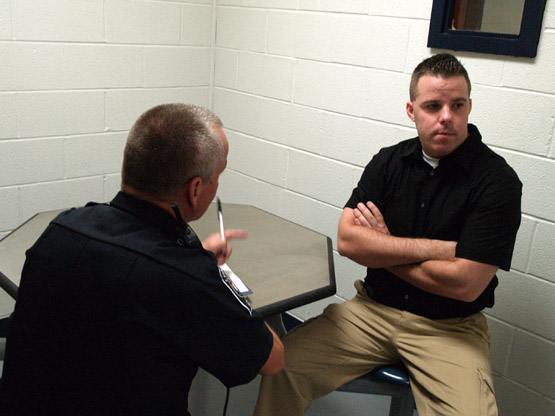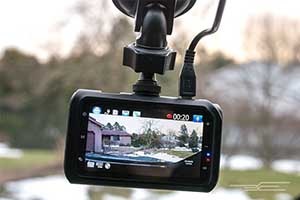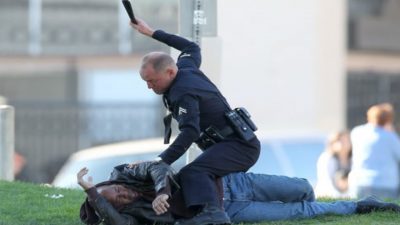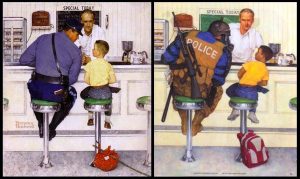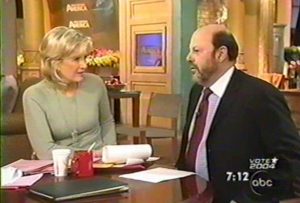![]() How to Sue the Sheriff’s Department in Federal Court?
How to Sue the Sheriff’s Department in Federal Court?
Sheriff agencies will almost always back the deputies who beat you, clubbed you, tased you, shot you, pepper-sprayed you, falsely arrested you, submitted false police reports to get you criminally prosecuted, or otherwise abused you. As a practical matter, the police really have to lie, cheat and obtain false convictions of their victims; that is, if they like their jobs and want to keep them They will destroy evidence, conceal evidence, fabricate evidence, author false police reports, procure false and malicious criminal prosecutions, and suborn perjury. They will do (almost) anything that will tend to exonerate the officer who victimized you.
Also, because of greater concerns about their civil / administrative liability, police agencies automatically take the “defensive civil position”, and decide to investigate in a manner only acknowledging their justification for their officer’s actions, and not any real effort to seek the truth. They gather evidence, under the bogus claim of a “crime scene” investigations. They unlawfully and knowingly conspire, to suppress evidence favorable to the civilian, and to neither seek nor give credit to, any evidence that implicates them.
WITH THAT IN MIND, PLEASE NOTE THE FOLLOWING:
1) DO NOT SPEAK WITH THE SHERIFF’S WITHOUT YOUR LAWYER PRESENT, IF AT ALL.
When the police use excessive force on persons, they almost always arrest them on bogus charges of resisting or obstructing or delaying a peace officer (Cal. Penal Code § 148(a)(1)), assault on a peace officer (Cal. Penal Code § 240/241(c)), or battery on a peace officer (Cal. Penal Code § 242/243(b)); all misdemeanors. If the police really beat-you-up, they probably will charge you with Cal. Penal Code § 69; using or threatening the use of force and violence to interfere with a public officers performance of his/her duties; a felony. Section 69 is the “crime de jour” of the police profession.
Since the sheriff deputies who used excessive force on you (or falsely arrested you) already know what happened, the only reason that they would want to question you, is to put words in your mouth; to coerce you or trick you into saying things that they will later attempt to use to justify their unlawful treatment of you. Supervisory officers (i.e. patrol sergeants and the like) will also want to interrogate you for the same reason. They are not interested in whether your side of the story is true. They are only interested in getting you to say your side of the story, with words that they coerce or trick you into saying; to protect their fellow officers and their police agency from you.
If you were arrested for armed robbery and were taken to the sheriff’s station, the police would read you your Miranda warnings, and, when you declined to speak with them, they would cease interrogating you and put you in your jail cell. You should know, that contrary to popular myth, in America the police are not obligated to “read you your rights.” If they don’t advise you of your right to counsel and right against self-incrimination (i.e. Miranda warnings) then any statement that you make after you’ve been arrested that is the product of police interrogation, cannot be used against you in court in the prosecution’s “case-in-chief.” However, if you take the witness stand at your trial, you can be impeached with those custodial statements that were obtained in violation of Miranda v. Arizona, 384 U.S. 436 (1966.)
The purpose that the Supreme Court handed-down Miranda v. Arizona in 1966, was to curb the abuse of custodial interrogation to obtain coerced confessions. Custodial interrogation at the police station is inherently coercive. The police have many techniques to get persons who are completely innocent of crimes, to either confess to a crime that they didn’t commit, or at least to get them to admit or state something that tends to incriminate them. When you’re scared, in a police interrogation room and the police bombard you with accusations for hours on end, that you deny for hours on end, people tend to get tired, and just want the questioning to stop.
Sometimes the police place you in a cold room, making you uncomfortable, and you just want to get out of the room, so you admit to at least some of what the police want you to, even though your innocent. So, the Supreme Court created the Miranda rule, that requires the police to advise you of your Fifth Amendment right against self-incrimination and your Sixth Amendment right to counsel, prior to interrogating you after you’re in police custody, to prevent false confessions.
However, if you were arrested for resisting arrest and battery on a peace officer, the many police agencies, especially the Los Angeles County Sheriff’s Department, ignore giving you your Miranda Warnings, and under the false pretense of an Administrative Force Investigation, proceed to interrogate you while your in police custody. You know that you haven’t done anything wrong, and the police have. You’re hoping that if you act cooperatively enough, that the cops will just let you go, or will at least give you a citation and let you be on your way, rather than require that you post bail; something that you know is going to costs you thousands of dollars; win, lose or draw. So, you say nice things to the police. You tell that you understand why the police officer did what he did to; that you can understand why the police officer did what he did to you, and are no longer complaining. You just want to go home. However, there really is nothing that will benefit you by discussing your incident with the police. Don’t do it.
2) DOCUMENT YOUR INJURIES.
As they say, a picture is worth a thousand words. Take lots of photos of your injuries. Don’t take a photo two inches away from the injury. Take close-up photos, but also back-up and away from the injury to put it is perspective. Also, take photos of all persons and places and things involved. Make sure also to back away from what you’re taking a photo of, so you have close-up photos as well as photos from farther away. Also, keep everything. Keep the bloody shirt or skirt. Keep your broken glasses. Keep and secure anything that has to do with your incident with the police.
3) GET LEGAL REPRESENTATION QUICKLY.
California Government Code Sections 26202.6 and 34090.6 provide for the retention periods of recordings of police radio and telephone communications (100 days), and for routine video monitoring (one year.) If your lawyer doesn’t make a formal demand that police radio and telephone communications regarding your case are located, maintained and preserved within 100 days of the incident, the police are generally free to destroy them; something that they will be more than happy to do. Many times, they destroy such evidence even if the agency is presented with such a demand for preservation of such evidence, but if they do so after having been served with such a preservation demand, chances are that you will be in a better position than you would have been otherwise. Also, your lawyer will usually make arrangements for a private investigator to locate and interview witnesses, and obtain evidence such as surveillance recordings. Many places that have video surveillance cameras have a 30-60 day retention time. If you don’t get the video evidence that can really show what really happened to you, you may be out of luck.
4) MAKE A CALIFORNIA GOVERNMENT TORT CLAIM FOR DAMAGES.
Under the California Tort Claims Act (Cal. Govt § Code 910 et seq.), you have six months from the date of the “accrual of the cause of action” (i.e. either the incident, or when a person is reasonably put on notice of the actions of the officer(s)) to file a Claim For Damages with the involved Municipal entity (i.e. State of California, City or County, or some other governmental entity, like a School District, a Water District, etc.; the entity that employed the public officer / official who violated your rights.) If you miss the six month deadline, you have up to one year from the date of the incident to file a Petition with a California Superior Court, to be relieved from having to have filed a Claim For Damages with the municipal entity (i.e. state, county, city, school district, water district, etc.) However, before you do that, you must request the permission of the municipal entity to file a Late Claim For Damages, and present the proposed Claim for Damages with the request. If you don’t file a Claim For Damages timely, you will lose your right to sue for claims that arise under California state law.
In California, you have two years from the date of the incident, however, to sue under claims against the officer and his/her employing municipal entity that arise under federal law; 42 U.S.C. 1983; the Ku Klux Act of 1871 (that allows persons to sue persons who violated their federal constitutional rights while acting under the color of state law.) That’s because Congress never enacted a Statute of Limitations for Section 1983 lawsuits. So, in Wilson v. Garcia, 471 U.S. 261 (1985), the U.S. Supreme Court held that the Statute of Limitations for lawsuit brought under 42 U.S.C. 1983, was the period of time to sue under the residual personal injury statute of the state in which the federal claim arose. Therefore, if the police beat you up and/or falsely arrested you in California, as the California residual personal injury statute is two years (See, Cal. Civ. Proc. Code § 335.1), you have two years from the date of the subject incident to sue under Section 1983. However, if you get beat-up and/or falsely arrested in some other state, that other state’s residual personal injury Statute of Limitations will be the Statute of Limitations for your Section 1983 claims.
Moreover, although Cal. Gov’t Code 945.3 tolls (postpones the running of) the statute of limitations for the filing of an actual lawsuit against a peace officer (i.e. police officer, deputy sheriff or other “peace officer” under Cal. Penal Code 830 et seq.) while a criminal case arising out of the same incident is pending against you, Section 945.3 doesn’t toll the requirements to file a Claim For Damages under the California Tort Claims Act
5) MAKE A PERSONNEL COMPLAINT TO THE INVOLVED POLICE AGENCY, WITH YOUR LAWYER PRESENT.
Cal. Penal Code § 832.5 requires police agencies to investigate complaints made to their agency about police officers. That doesn’t mean that they aren’t just going through the motions, and that the investigation is truly an investigation. In virtually all American police agencies, if there is a swearing contest between you and an officer, the officer will not be found culpable or otherwise in the wrong. However, having the police do even a bogus Internal Affairs Investigation, will require the agency to interview the involved officers and at least some of the witnesses. This may be helpful to your case, because liars cant remember all of their lies, and chances are that the statement that the officer gives to Internal Affairs will, in some material way, conflict with his report, the report of another officer, or later testimony by the officer. Moreover, finally, the Internal Affairs statements of the involved police officers are discoverable in California Superior Court criminal cases. See, Rezek v. Superior Court, 206 Cal.App.4th 633 (2012.)
Moreover, the mere process of making such a personnel complaint requires your complaint to be kept in the officers file for five years, and your complaint may just help out the officers next victim, or, if there are enough complaints, get the officer fired, or transferred to an assignment where he/she wont be in a position to goon other civilians.
Please also note that there are cases in which you may have committed a crime, and, in light of the charges and the evidence, you may be better-off not making any statements at all; even a Personnel Complaint. Seek the advice of your attorney on this issue.
6) IF YOU ARE BEING CRIMINALLY PROSECUTED, BE CAREFUL NOT TO PLEAD YOURSELF OUT OF COURT IN YOUR CIVIL CASE.
Only the California Attorney Generals Office and the County District Attorneys Office can file a criminal court case against you for any violation of California state law. In some cities like Los Angeles or Anaheim, the City Attorneys Office files and prosecutes any misdemeanor (state law) criminal charges in court, and the District Attorneys Office files and prosecutes felony criminal cases. Only a City Attorney’s Office can prosecute a violation of a City ordinance, and only the County Counsel’s Office can prosecute violation of a County Ordinance.
There are several reasons that police officers that beat-you-up and/or falsely arrest you, procure your criminal prosecution for crimes that you didn’t commit. First, although the police usually are not familiar with legal jargon such as collateral estoppel or res judicata, they know enough to know that if they can get you convicted of any crime, that, you cannot sue the police for false arrest (Heck v. Humphrey, 512 U.S. 477 (1994).) Moreover, if your conviction is for crimes such as resisting or obstructing or delaying a peace officer (Cal. Penal Code § 148(a)(1)), assault on a peace officer (Cal. Penal Code § 240/241(b)), battery on a peace officer (Cal. Penal Code § 242/243(b)) or Cal. Penal Code § 69 (resisting with violence), you may be precluded from suing the police at all; even for excessive force.
The gimmick in this situation, is that a common element of each of the four crimes mentioned above, is that the alleged victim officer must be engaged in the lawful performance of his duties for a criminal defendant to be found guilty of such crimes. See, People v. Curtis, 70 Cal.2d 347 (1969); See also, the California Criminal case standard Jury Instructions on this issue; CALCRIM 2670. Therefore, if you’re convicted of any of those four crimes, the jury must have necessarily found that the officer was not acting unlawfully; such as by using excessive force, by making an unlawful detention of an arrest, or by otherwise acting unlawfully.
Thus, because you have now been convicted of any of those four crimes, the issue of whether the officer was acting lawfully is res judicata; a thing decided, and you are collaterally estopped (precluded in one case because of an issue being decided against you in another case) from suing. In some cases where a person was convicted of one of those four crimes, it may still be possible to sue for excessive force if the case is of such a nature, that the criminal violation is sufficiently segregated from the use of excessive force. So, for example, one could have, resisted or delayed an officer by not complying with a lawful order him/her, and then the officer proceeds to beat-you-up. However, as a practical matter, most Judges will find against you on this issue.
The police also want to get you criminally prosecuted to beat you down; to mar your case and cut-it-down; piece by piece. The City of Santa Ana, California, used to have an extortion form; a plea agreement (and even a dismissal) form where the City Attorney checked-off the box that says: Stipulates To Probable Cause For Arrest. Entering a plea with that box checked-off will usually be upheld if you try to sue the police later on. If the prosecutor requires that you stipulate that there was probable cause for your arrest in exchange for dismissing one of more criminal charges, the prosecutor is guilty of felony extortion under California law; a violation of Cal. Penal Code § 518 / 519 (MacDonald v. . Such a demand is also a violation of the State Bar of California Rules of Professional Conduct 5-100; illegal to gain advantage in civil case by threatening to accuse another of a crime; guilty or not.
Moreover, notwithstanding Cal. Penal Code § 1016, that provides that a plea of nolo contendre (“no contest”) to a misdemeanor has no effect on a civil case, will not save your civil case from the Heck v. Humphrey bar to suing because of a conviction. See, Szajer v. City of Los Angeles, 632 F.3d 607, 610 (9th Cir. 2011) (holding that although a plea of nolo contendre / no contest is inadmissible evidence in federal court under Federal Rules of Evidence 410, that the district court may nonetheless take “judicial notice” of the fact of the conviction, sufficient to bar a civil plaintiff’s federal Constitutional claims.) Although Heck v. Humphrey is a federal case, the California Courts have adopted the Heck v. Humphrey bar to California state law claims; now precluding at least a false arrest claim, and also most illegal search and seizure claims, when the civil plaintiff was a criminal defendant over the same incident, and he/she pleaded guilty or nolo contendre to a crime. See, Yount v. County of Sacramento, 43 Cal.4th 885 (2008.)
CALL US FOR ADVISE.
If you’ve been falsely arrested or beaten-up by the police, please call the Law Offices of Jerry L. Steering for a free phone or office consultation, to get some justice. We can live without a lot, but we can’t live without justice.
| Police Misconduct Specialties: | ||
|
|
|
***The State Bar of California does not certify a specialty in police misconduct which is most of Mr. Steering’s law practice.]
Published: 09/21/2020

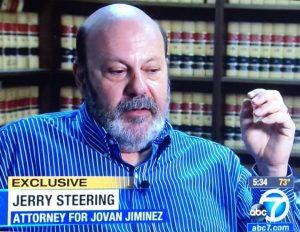 How to Sue the Sheriff’s Department in Federal Court?
How to Sue the Sheriff’s Department in Federal Court?